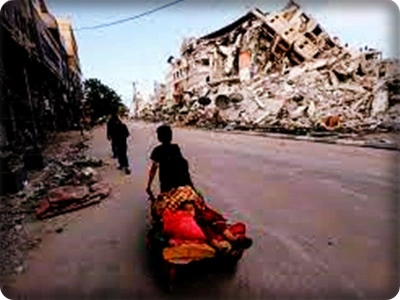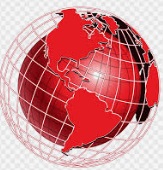In today’s world, we still witness instances of apartheid, genocide, and ethnic cleansing tearing apart nations and communities. These devastating acts not only violate basic human rights but also threaten the stability and peace of our global society. In this blog post, we will explore the best solutions that the international community can employ to confront and address these issues effectively.
Section 1: Understanding Apartheid
Apartheid refers to a system of institutionalized racial segregation and discrimination. It has historically been associated with South Africa during the late 20th century. However, it is important to acknowledge that apartheid-like practices can occur in various forms and locations around the world.
To effectively address apartheid, it is crucial to focus on education and raising awareness among individuals, communities, and policymakers. By promoting inclusivity, diversity, and equality through educational programs at all levels, societies can lay down strong foundations for eradicating apartheid practices.
Section 2: Facing Genocide Head-On
Genocide represents one of the most horrific crimes against humanity; it involves the deliberate extermination or mass killing of specific ethnic or religious groups. To confront this grave issue effectively, several measures must be implemented:
2.1 Early Warning Systems
Developing robust early warning systems plays a vital role in preventing genocide. These systems involve monitoring conflicts around the world using various indicators such as hate speech, incitement to violence, displacement patterns, or weapon stockpiling.
2.2 International Criminal Court (ICC)
Supporting international institutions like the ICC can help hold accountable those responsible for planning and executing genocidal acts. Strengthening cooperation between nations in sharing intelligence information and facilitating investigations can significantly contribute to justice being served.
2.3 Peacekeeping Missions
Deploying international peacekeeping forces in regions at risk of genocide can provide a deterrent effect and help protect vulnerable populations. These missions should be adequately funded, well-trained, and equipped to fulfill their mandate effectively.
Section 3: Addressing Ethnic Cleansing
Ethnic cleansing involves the systematic expulsion, displacement, or eradication of particular ethnic groups from specific territories. To tackle this issue comprehensively, the following strategies can be employed:
3.1 Diplomatic Pressure and Sanctions
Implementing diplomatic pressure through international organizations like the United Nations can exert significant influence on countries involved in ethnic cleansing. Targeted economic sanctions against governments or individuals responsible for such acts can also serve as an effective tool.
3.2 Refugees and Asylum Seekers
Providing support and protection to refugees and asylum seekers affected by ethnic cleansing is crucial. Welcoming displaced individuals with open arms, offering resources for resettlement, and ensuring access to basic necessities like food, water, healthcare, and education are essential steps.
3.3 Mediation and Conflict Resolution
Engaging in mediation efforts between conflicting parties can help de-escalate tensions that often lead to ethnic cleansing. Neutral mediators should facilitate dialogue among stakeholders to foster understanding, reconciliation, and peaceful coexistence.
Section 4: Strengthening International Cooperation
Addressing apartheid, genocide, and ethnic cleansing requires a cohesive approach from the international community. Strengthening international cooperation can significantly enhance the efficacy of these efforts:
4.1 United Nations Security Council (UNSC)
The UNSC plays a crucial role in maintaining peace and security worldwide. Reforms within the UNSC should aim to eliminate any bias or political deadlock that may hinder swift action against countries engaged in apartheid-like practices or genocidal acts.
4.2 International Aid Programs
Increasing funding for international aid programs can provide much-needed resources to countries affected by apartheid or undergoing post-genocide recovery. These programs should focus on rebuilding infrastructures, promoting social cohesion, and empowering marginalized communities.
4.3 Global Human Rights Campaigns
Promoting global human rights campaigns can raise awareness about the atrocities committed during apartheid, genocide, and ethnic cleansing. Such campaigns can mobilize public support for initiatives aimed at justice, peacebuilding, and conflict prevention.
Section 5: Long-Term Prevention Strategies
While immediate action is necessary to address ongoing instances of apartheid, genocide, and ethnic cleansing, long-term prevention strategies are equally vital:
5.1 Education for Tolerance
Integrating tolerance education into school curricula worldwide can play a significant role in preventing future atrocities. By teaching empathy, respect for diversity, and conflict resolution skills from an early age, societies can foster a culture of inclusion and non-discrimination.
5.2 Transitional Justice Mechanisms
Implementing robust transitional justice mechanisms in post-conflict societies can help heal wounds inflicted by apartheid or genocide. This may involve truth commissions, reparations programs, or criminal prosecutions to ensure accountability while allowing societies to move forward.
5.3 Addressing Root Causes
To prevent the recurrence of apartheid or genocidal acts in the long run, addressing underlying root causes such as socio-economic inequalities or political marginalization is essential. Governments should strive to create inclusive policies that promote equal opportunities and social cohesion.
Conclusion
Confronting apartheid, genocide, and ethnic cleansing requires a multi-faceted approach involving education, international cooperation, diplomatic pressure, peacekeeping missions, accountability mechanisms like the ICC, and long-term prevention strategies. As a global community committed to upholding human rights and dignity for all individuals everywhere on our planet Earth, it is imperative that we collectively work towards eradicating these grave injustices once and for all.



